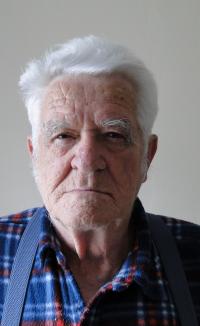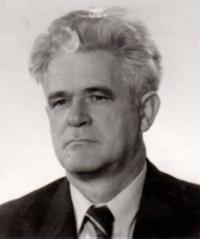I’m a Silesian, nothing more, nothing less
Karel Sikora was born on the 5thof February 1934 in Český Těšín as the fourth son of Gustav Sikora and Marie Sikorová. His father came from a German cultural background while his mother had a Polish one. Both Český Těšín and Karel’s family were split into Czech, German, and Polish parts within a couple of years. One of Karel’s brothers died as a Luftwaffe officer, another one was imprisoned by both the Germans and the Communists, and the third one was forced to emigrate to West Germany. Karel graduated from a business school and worked in the trade department of Třinecké železárny up until he refused to participate in the wake held following Stalin’s death. After that he worked in a mine in a town called Horní Suchá (Karviná area), was misled when starting his military service and instead got imprisoned for 15 months. He was released on the basis of the amnesty declared by President Novotný. Later he moved to Vrchlabí, became an electrician and married his first wife Květa. They acquired a cooperative flat in Český Těšín and moved there, with Karel working as a postman. He met his second wife through an advert, becoming the step-father to Hilda’s five children and fathering two more sons. Karel has retired in 1994. He considers himself to be a Silesian.

